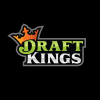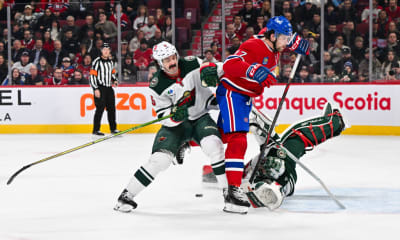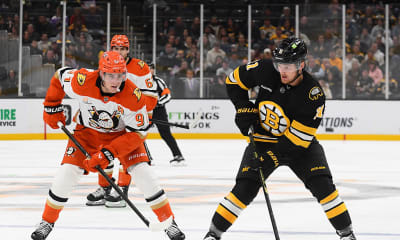Your Guide to the NHL 2025/26: Atlantic Division

Current bets
The NHL 2025/26 season is right around the corner—and everything points to one of the most intense editions in years. The Florida Panthers are chasing a historic three-peat, Tampa Bay wants its throne back, and Toronto is entering a new era without Marner. Add in Buffalo’s quest to break its eternal curse, and teams like Montreal and Detroit hoping to take the next step in their rebuilds. The Atlantic Division will once again be a hornet’s nest.
Below you’ll find answers to the most common questions ahead of the season—from when the puck drops to who the favorites are to lift the Cup.
How have your betting tips performed in previous seasons?
I have a long track record of documented betting records that have always been public and accessible. That will also be the case this year. Last season my focus was more on a private group, which meant fewer plays were posted publicly on social media. But now I’m back with tips as before – mainly high-limit bets on game days, occasionally spiced up with a prop when the right spot comes along.
- NHL High Limit (2021/22–2023/24): 1,335 bets, +7.32% ROI
When does the NHL 2025/26 season start and end?
The 2025/26 NHL season begins on October 7, 2025, and the regular season ends on April 16, 2026. After that, the Stanley Cup Playoffs take over, running as usual well into June.
In the middle of the season, Olympic hockey in Milan 2026 will be played, scheduled for February 8–22, 2026. The NHL will make an official break during these weeks, meaning league play pauses while the world’s best players suit up for their national teams. This marks the first time since Sochi 2014 that NHL players participate in a Winter Olympics, making the season extra special—with an intense schedule before the break and a packed finish afterward.
How do divisions and conferences work?
The NHL is divided into two conferences: the Eastern Conference and the Western Conference. Each conference is further split into two divisions.
Eastern Conference
Atlantic Division
Metropolitan Division
Western Conference
Central Division
Pacific Division
Each division contains eight teams, meaning both the Eastern and Western Conference consist of 16 teams each.
When it comes to the playoffs, the top three teams in each division qualify automatically. In addition, there are two so-called wild card spots in each conference. These go to the two teams with the highest number of points in the regular season that did not already qualify via a top-three finish in their division.
This means the distribution is not always exactly even between the divisions. Sometimes one division can send as many as five teams to the playoffs while the other only gets three. This system ensures that the best teams in the conference as a whole are rewarded—not just the ones within a particular division.
Who won the Stanley Cup last season?
The Florida Panthers were crowned champions in 2025 after defeating the Edmonton Oilers 4–2 in the Final series. In the decisive Game 6, the Panthers cruised to a 5–1 victory in front of their home crowd.
Sam Bennett was named Playoff MVP after a spectacular postseason with 15 goals, while Sam Reinhart delivered a historic performance in the Final by scoring four goals in a single game—something that hadn’t happened in a Stanley Cup Final since 1957.
It was the Panthers’ second straight title and their third consecutive Stanley Cup Final appearance.
Who are the favorites this season?
Heading into this season, the Florida Panthers are once again the favorites according to the betting odds—and it’s hard to argue against that. The team has reached three straight Stanley Cup Finals, winning two of them, and still has a core of players who know exactly what it takes to go all the way.
But the competition is fierce. The Edmonton Oilers, Carolina Hurricanes, Colorado Avalanche, Dallas Stars, Vegas Golden Knights, and Tampa Bay Lightning are all legitimate contenders capable of challenging the Panthers for the title.
1.
 Tampa Bay Lightning – The storm is far from over
Tampa Bay Lightning – The storm is far from over
Tampa Bay’s early playoff exit at the hands of the Florida Panthers was hardly the ending they had hoped for. But to interpret that as the Lightning being on the decline would be a mistake. This team is still loaded with top-end talent, experience, and depth that only comes from dominating the league for an entire decade.
Up front, the team is led by Nikita Kucherov and Brayden Point, two of the league’s deadliest offensive weapons. Kucherov won the scoring race for the second year in a row, and there are no signs of him slowing down this season either. Add Jake Guentzel, who fit like a glove after replacing Steven Stamkos last season, and you have a top line that can tear apart any defense. Behind them is Brandon Hagel, who broke out with 90 points in 82 games last season. Alongside Anthony Cirelli, he gives Tampa two extremely dangerous lines—a luxury few teams can match.
On defense, Victor Hedman continues to be the clear leader, even if the years are starting to add up. He gets strong support from Erik Cernak, who is back in top form, providing both stability and grit. And in net, of course, there’s Andrei Vasilevskiy. After a down period a couple of years ago, he proved last year that he’s still one of the very best goaltenders in the league. When he’s locked in, he can single-handedly carry the team.
One underrated strength of the Lightning is that they’re not just a team of stars—they also have the depth to rotate and still maintain a high level. Players like Yanni Gourde and Oliver Bjorkstrand might not grab the headlines, but they play crucial roles and allow Tampa to keep the pace up even when the top line is resting.
Yes, the roster is aging at some key positions, and you never know how long a team can stay at the top year after year. But looking at the 2025/26 lineup, it feels more like a strength than a weakness—this is a team that knows how to win. So don’t count out Tampa Bay. In fact, the opposite. It’s easy to assume the Florida Panthers have taken over the throne in Florida for good. I’m not so sure. My feeling is that the Lightning are being overlooked. And believe me—they’ll be hungry for revenge!
2.
 Florida Panthers – The hunt for a three-peat
Florida Panthers – The hunt for a three-peat
“The new dynasty,” the Florida Panthers, have been a force of nature in recent years, winning the Stanley Cup two years in a row. So, shouldn’t they automatically be ranked at the very top of the Atlantic Division? According to sportsbooks and most experts, yes. And I won’t deny that ranking them first makes sense—quite the opposite, in fact—but the idea with my guides is also to look for betting value. And when the Panthers are seen as the clear-cut #1 in the Atlantic, I have to object.
When the Panthers are seen as the clear-cut #1 in the Atlantic, I have to object.
Because yes, Florida still has a championship-caliber roster. They’ve been to three straight Cup Finals, won two, and still have a core that few teams can match. Aleksander Barkov is the heart and brain of the team, Sam Reinhart remains one of the league’s sharpest goal scorers, and Sam Bennett proved last year that he’s much more than just a physical presence—he was the playoff MVP. The addition of Brad Marchand from Boston has been a stroke of genius, providing both depth and leadership in spades.
And it’s precisely the depth that makes Florida so dangerous. That third line of Eetu Luostarinen, Anton Lundell, and Marchand was a nightmare to face in the playoffs, and as long as it stays intact, the Panthers will be very tough to beat. On defense, Gustav Forsling has become one of the league’s top blueliners, Aaron Ekblad is as steady as ever, and Seth Jones has rediscovered his game. In net, Sergei Bobrovsky has gone from being mocked as a contract bust to becoming a two-time Cup-winning goalie. His ability to elevate in the playoffs is almost legendary.
But—and here’s where it matters for us looking for betting value—the Panthers are not without question marks. Matthew Tkachuk, the team’s spark and emotional engine, will miss a large part of the regular season after surgery. He’s simply irreplaceable, even if someone like Mackie Samoskevich might step into a bigger role in his absence. In addition, Florida has repeatedly shown that they prioritize being fresh for the playoffs rather than maxing out every point in the regular season. It’s a strategy that has worked in the Cup chase—but it can also mean they won’t run away with the Atlantic crown.
The Florida Panthers are still a powerhouse, fully capable of chasing a historic third straight title. But to say they are the automatic #1 in the Atlantic Division? That’s where I raise an eyebrow. Teams like Tampa or Toronto could absolutely take the regular-season crown—even if Florida is still the team no one wants to face in April.
3.
 Toronto Maple Leafs – Life after Marner
Toronto Maple Leafs – Life after Marner
Last year I had to defend myself both in text and video when I ranked the Toronto Maple Leafs as #1 in the Atlantic Division. And no, I won’t pat myself on the back too much—but the fact is, the Leafs delivered exactly what I expected. 108 points in the regular season and first place in the Atlantic, ahead of both Tampa and Florida. In the playoffs, they fell in the second round to the Panthers, but not without drama: Toronto was the only team to push Florida to seven games.
So why am I ranking them lower this year? The answer is Mitch Marner. Or rather—the absence of Mitch Marner. He has taken his share of criticism over the years, especially for not being able to carry the Leafs in the playoffs. But don’t be fooled—this is still a massive loss. Marner is one of the league’s most complete forwards—the combination of puck carrying, brilliant passing, and defensive awareness exists in very few players in the NHL. In nine seasons with Toronto, he scored 741 points in 657 games. The fact that Matthews and Marner can no longer drive the top line together changes everything.
The fact that Matthews and Marner can no longer drive the top line together changes everything.
That said, the remaining roster is far from bad. Auston Matthews is still one of the league’s premier goal scorers, William Nylander had a huge season, and John Tavares provides veteran consistency. Add to that last year’s most underrated piece, Chris Tanev. I can’t stress enough how important he was for Toronto’s defensive stability. He is the definition of a “tough bastard”—always in position, always ready to block shots, always sacrificing himself. His presence made the Leafs much harder to play against.
Goaltending was another big success factor. Anthony Stolarz and Joseph Woll were arguably the league’s best goalie tandem last season. The issue is whether they can repeat that. Expecting both to exceed expectations two years in a row is no guarantee.
And then there’s the forward dynamics. How will the Leafs line up? Is newcomer Matias Maccelli expected to join Matthews and Knies on the top line? Or will they break up Tavares and Nylander, who had great chemistry on the second line, and move Willy up? Whatever the solution, it’s a brand-new formation to work with.
The bottom line? Toronto is still a top team, but without Marner, it’s hard to see them hitting 108 points again. The regular season could be a step backward—and the big question will be whether the Leafs can truly fill the void left by Mitch Marner. Last season I saw the Toronto Maple Leafs as a genuine Cup contender—this season, I struggle to visualize them going all the way.
4.
 Buffalo Sabres – Can the curse finally be broken?
Buffalo Sabres – Can the curse finally be broken?
The Buffalo Sabres may be the most underrated team in the entire Atlantic Division. Last season I believed in them—and got burned when the team hit a wall with a 13-game losing streak. But strangely enough, that makes Buffalo even more intriguing heading into 2025/26. When everyone else gives up on a team, that’s often when you should be on alert.
Yes, the playoff drought is embarrassing. 14 straight seasons without hockey in April or May. The longest in the NHL, the longest in all of North American pro sports. But there is hope. Despite last year’s collapse, Buffalo has a core that’s young, developing, and already good enough to surprise.
Up front, the team is led by Tage Thompson, a goal-scoring machine when in form. He’s supported by the powerful Alex Tuch and, ideally, youngsters like Zach Benson and Jiri Kulich who can take the next step. Benson already looks like a polished two-way forward and seems ready for more responsibility. Kulich isn’t a superstar, but as a center, he could complement the top names well. These internal steps forward could be decisive.
And on defense? Rasmus Dahlin is already established as one of the NHL’s best defensemen and the team’s clear leader. The hope is that Owen Power takes the next step and grows into a top-two role. New signing Michael Kesselring is an exciting addition who could be a big upgrade over Clifton and Bryson. Add Bowen Byram, still a wild card for the future, and Mattias Samuelsson as a steady defensive presence—and Buffalo’s blue line looks stronger and more balanced than it has in years.
Goaltending is the big question. Ukko-Pekka Luukkonen looked like the solution two seasons ago but regressed badly last year. Can he bounce back, or will Alex Lyon or Devon Levi need to step up sooner than expected? Buffalo’s season might hinge on this.
So what can we expect? I like Buffalo, mainly because they feel overlooked. It’s easy to just see last year’s disaster, but there’s too much talent here for them to stay at the bottom again. With a little luck and internal growth, they could definitely sniff 90 points—and that puts them right in the playoff race.
5.
 Ottawa Senators – The NHL’s definition of “average”
Ottawa Senators – The NHL’s definition of “average”
The Ottawa Senators actually made the playoffs last season—for the first time in a while. But looking closer, it’s hard to call them anything other than the definition of a wild-card team. They were average in literally everything: power play, penalty kill, five-on-five metrics. Not bad, but not impressive either. Simply… average.
The real standout was goaltending. Once Linus Ullmark got going in the winter, he carried the team on his shoulders. He was the difference between another mediocre season and actually playing hockey in April. The problem, of course, is that it’s not sustainable to build your identity around your goalie saving the day every night. Ottawa needs more if they want to be a consistent playoff team.
The major changes came in the spring when Dylan Cozens arrived via trade with Buffalo, giving the second line more stability—even if it meant Josh Norris departed. Fabian Zetterlund came over from San Jose, a typical depth signing who can fill multiple roles. But perhaps the most interesting addition is defenseman Jordan Spence, acquired from Los Angeles in the summer. He’s not a star, but exactly the type of player Ottawa has been missing. Their third pairing was a disaster last season—whether it was Kleven, Matinpalo, or Hamonic—and Spence could make a real difference. If he dominates the minutes he’s given, that’s a clear upgrade. In the best case, he even climbs into the top four.
Offensively, Tim Stützle remains the motor, but it’s clear Ottawa lacks another true top forward. They’ve built smarter around him, but without a new superstar, it’s hard to see them taking the next step. The defense looks more stable than before, but Ullmark still has to carry the heaviest load if the team is going to hold it together.
So what does this mean? Likely more of the same. Ottawa is good enough to be in the playoff hunt but not strong enough to be a sure thing. They’ll probably land around the same point total again and fight for a wild-card spot until the very end.
In short: the Senators are the NHL’s definition of “average.” A team that doesn’t stand out in anything—except for always being right on the playoff bubble.
6.
 Montreal Canadiens – One step back to take two forward?
Montreal Canadiens – One step back to take two forward?
The Montreal Canadiens were one of last season’s big surprises. From sitting near the bottom in December to sneaking into the final playoff spot in April. Falling in the first round to Washington was almost secondary—the fact that the Habs were there at all was a victory in itself.
But let’s be honest: Montreal overperformed. They made the playoffs with a goal differential of –20, which normally isn’t enough to qualify. Their underlying numbers (xGF%) were among the league’s worst all season. That they still turned it around was impressive—but it also means we need to be cautious with expectations despite the cheers from various experts and enthusiastic fans. My feel? The Habs will be a better hockey team this year, but that doesn’t have to translate into more points.
My feel? The Habs will be a better hockey team this year, but that doesn’t have to translate into more points.
The top line with Nick Suzuki, Cole Caufield, and Juraj Slafkovský is the engine, and all three enter the season off personal bests. Add Ivan Demidov—the Russian super talent who could easily enter the Calder Trophy conversation—and suddenly there’s even more punch up front. The offense is better equipped than it’s been in a while, even if Patrik Laine remains a question mark. If he stays healthy, he can be a difference-maker on the power play, but that’s far from guaranteed.
There’s even more optimism on the blue line. Lane Hutson was a sensation last year and took home the Calder Trophy after a rookie season that could hardly have gone better. Adding Noah Dobson from the Islanders brings experience and heft to an otherwise young defense. Together with Kaiden Guhle and Mike Matheson, there’s a mix that should make Montreal steadier over time, even if the defensive game will remain a work in progress.
And in goal? Samuel Montembeault has silenced his critics and established himself as one of the league’s most underrated starters. He’ll need to keep delivering at a high level for the Habs to stay in the race.
So what should we expect? Montreal feels more exciting, more talented, and more complete than a year ago. But because last season was already a major overperformance, the point total could end up similar—or even a bit lower—despite the team trending in the right direction. The Canadiens are re-establishing themselves as a good NHL team, but I’d urge some patience. While the Buffalo Sabres feel underrated, I worry expectations for Montreal are getting a bit too high.
Sure, I wouldn’t be shocked if they surprise positively again, but last season’s underlying numbers linger. At five-on-five they were the fifth weakest team in the NHL (xGF%)—and over time, those numbers tend to catch up. Dobson and Demidov will absolutely make the team better, but the question is whether it’s enough for the Habs to be locked into a playoff fight. I’m not as certain as many others seem to be. This might be the season where the Canadiens take a step back in the standings in order to take two steps forward next year.
7.
 Detroit Red Wings – Forced renaissance or genuine leap?
Detroit Red Wings – Forced renaissance or genuine leap?
The Detroit Red Wings always stir emotions, especially in Sweden. The legacy of Lidström, Zäta, Holmström & co. means many cheer for the Wings and want to see them return to glory. And sure, there are building blocks here—Lucas Raymond, Moritz Seider, Dylan Larkin, and a power play dangerous enough to carry them a ways. But the question is: how much of their success is real, and how much is being forced by Steve Yzerman’s hand?
In recent seasons, I’ve been fairly skeptical of the Red Wings. When Yzerman took over, it felt like Detroit had a sensible, long-term rebuild underway. But in the last few years, it has looked more like he’s rushing back to relevance. The result is a roster where certain parts impress—but the whole still feels unfinished.
But in the last few years, it has looked more like he’s rushing back to relevance
Look at the offense: Larkin is a reliable two-way center; Raymond is emerging as one of the league’s most exciting Swedish forwards; and Alex DeBrincat has elite finishing. When everything clicks—especially on the power play—Detroit can look like a top team. But outside of special teams? Often a different story. The depth isn’t quite there, Patrick Kane is more of a nostalgic bonus than a long-term solution, and it’s still unclear whether Marco Kasper is ready right now to shoulder a heavy top-six load.
On defense, Seider and Edvinsson carry the future hopes. Seider is a rock, but it hasn’t quite exploded to Norris level the way many predicted. Edvinsson looks ready for more responsibility, but around them it’s thin. Yzerman has cycled veterans on the blue line for years, and none of the attempts have really hit. It’s hard to build a stable foundation when you swap out bricks every summer.
The goalie situation looks stronger on paper. John Gibson is experienced and comes off one of his better seasons in a while in Anaheim. If he can provide continuity, that would be a major boost—but it’s far from guaranteed. Cam Talbot was fine last year, but at 38 you can’t expect more than a steady backup role. Gibson is expected to carry the starter’s load.
So where do we land? Detroit is definitely better than a few years ago, and the Raymond–Seider duo is exciting enough to give fans hope. But I still doubt how far this team can actually go. Behind a power play that bears a lot of the burden, the roster still looks thin, and as long as that’s the case, there’s a big risk the Red Wings will have to wait yet another season before playoff hockey returns to Hockeytown. A tip for Todd McLellan: keep the team out of the penalty box. With the NHL’s weakest penalty kill last season, there’s obvious room for improvement there, too.
8.
 Boston Bruins – how did we end up here?
Boston Bruins – how did we end up here?
Just three seasons ago, the Boston Bruins were on top of the hockey world. 135 points in the regular season—more than any team in NHL history—and a sense that the “Big Bad Bruins” had found a new decade to dominate. Since then, reality has struck back. A drop-off was expected, but last year’s meager 76 points—their worst total in two decades—was a cold shower. Now the question is whether there’s hope for improvement, or if the Bruins have lost their identity for good.
Jeremy Swayman got tangled in contract issues, McAvoy and Lindholm battled injuries, and when captain Brad Marchand was shipped out at the trade deadline, it felt like the lights went out at TD Garden. The Bruins collapsed—both in the numbers and in their self-image.
Still, there are a few threads to pull on. Pastrnak remains a superstar, and late last season he actually found chemistry with Elias Lindholm and Morgan Geekie—a line that started to click after a long stretch of frustration. If that trio works over a full season, it could at least give Boston some offensive hope.
Behind them, there are more questions than answers. Arvidsson was brought in, Zacha needs to bounce back, and Mittelstadt is suddenly expected to be a creative engine in a shallow forward group. The bottom six looks thin, and unless young players like Fraser Minten or Fabian Lysell (who still hasn’t quite found his footing) step up, it’s hard to see where the extra offense will come from.
And the defense? There is at least a bit of light here. McAvoy and Lindholm are expected to be healthy, and at their best they can give Boston a legitimate top pairing. Zadorov showed in stretches that he can be a physical pillar, and with Jokiharju alongside him, the second pair might look more balanced. But even here, margins are slim—injuries or slumps, and the Bruins could be exposed again.
Goaltending is a wild card. Swayman has the capability—he’s shown it before—but last year’s slump was brutal. If he rebounds, he can keep the Bruins afloat; another middling season risks dragging the team back toward the bottom.
So—how did we end up here? A team that was the NHL’s golden child not long ago has, in three years, lost stars, identity, and fear factor. Marco Sturm faces a thankless first season behind the bench. Expectations in Boston are always high, but the roster looks built more to fight to avoid the Atlantic basement than to chase a Stanley Cup. It feels harsh to place the Bruins at the bottom of the division, but the reality is this team is a long way from what it was a couple of years ago. Add that the teams around them have only gotten better.
Projected Standings
- Tampa Bay Lightning
- Florida Panthers
- Toronto Maple Leafs
- Buffalo Sabres
- Ottawa Senators
- Montreal Canadiens
- Detroit Red Wings
- Boston Bruins
Betting Tips
- Tampa Bay Lightning to win the Atlantic Division @ +300 bet365
I completely get why the Panthers top the sportsbooks—two straight titles speak for themselves. But the Lightning are still one of the league’s most complete teams, with nearly a decade at the top and 100-point seasons as standard. With the Panthers missing Tkachuk for large parts of the year and Toronto set to take a small step back, nearly five-to-one on Tampa to win the division feels like the clear play.
- Tampa Bay Lightning to win the Stanley Cup @ +1600 Bet365
It’s pretty simple: as long as the Lightning have Kucherov, Point, Hedman, and Vasilevskiy—plus support from players like Hagel and Cirelli—they can win it all. The experience is there, the depth too, and this is still the NHL’s most complete offense. 292 goals last year, with only the Capitals close at 286, says plenty. Getting 19-to-1 on a team of this quality is a bet I’ll gladly take.
- Buffalo Sabres to make the playoffs @ +300 Bet365
The Sabres went ice-cold last year, but the team’s talent is too big to ignore. Dahlin is a top defenseman in the league, Thompson and Tuch can drive a first line at a high level, and the depth is better than before. If the goaltending even rises to average, Buffalo is a fully realistic playoff candidate. Four-to-one tastes good.
- Buffalo Sabres over 82.5 points @ -125 BetMGM
Even if the playoffs aren’t guaranteed, 82.5 feels low. The Sabres have young growth underway and a blue line more stable than before. If they can just sort out the goaltending, they should clear that line without needing to max out.
- Florida Panthers under 106.5 points @ -105 Bet365
The Panthers have made three straight Cup Finals and are unquestionably one of the league’s best teams—but hitting 107 points on command isn’t easy, even for a champion. With Matthew Tkachuk out for large parts of the season and a Florida team that rarely chases every regular-season point, there’s a good chance they land under that mark. The Panthers are built for April—not to max out October through March.
Current bets

+21. Play responsibly.
Best sports bonuses of the week















